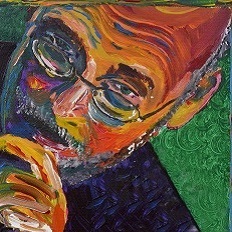Could you repeat that?
It was a very quiet day on the geriatrics service, at least for one physician.
It was a quiet day on Med 8, the inpatient geriatrics service at St. Mary's Hospital in scenic Rochester, Minn. At least it seemed very quiet to me. I was on with Dr. Palmer, who was a geriatrics fellow at the time. Dr. Palmer was giving her usual succinct but detailed review, this time about the case of Mr. Olson. When she was done, I suggested we see this patient, Mr. Johnson, together.
She corrected me, “It's Olson.”
I agreed. “He is very old. It's the geriatrics service after all.”

As we walked down the hall, she wondered if I would be answering my pager, since it had gone off twice.
We entered the room of Mr. Olson. He was a spry 92-year-old bachelor farmer from a small town near our fair city. He was admitted with cellulitis and an acute exacerbation of his COPD. He was also quite hard of hearing, not unusual on our service. Dr. Palmer expressed alarm about this symptom, noting that the patient reported it to be rapid onset. I thought he said it had been years. She shrugged and asked if I would please answer my pager.
Dr. Palmer laid out the possible causes of subacute hearing loss, noting that it was a risk for delirium in hospitalized patients. She suggested that we get him a pocket amplifier. He had no history of head trauma or exposure to extremely loud noises. His cranial nerves were normal with no signs of meningitis. There was no neurologic asymmetry in strength reflexes or sensation. He wasn't on loop diuretics or aminoglycosides or other meds that might cause hearing loss. She laid out a variety of basic to obscure tests and imaging that we could consider.
In my usual affable style, I agreed with her and suggested she order whatever labs, images, or consults she felt were appropriate. She said she would, but first she was going to grab an otoscope and look in his ears. I waited and enjoyed some “Gunsmoke” on the TV, played at maximum volume, his preferred setting. She returned after a quick search and bent over to get a look at his auditory canals. Using a small spatula, she fished something out, white and brown and somewhat smelly. She found the same in his other ear.
He laughed and said that it must have been some toilet paper he shoved in there while driving his noisy tractor and forgotten to remove. And then he told us to turn down the TV, because it was too darn loud.
I congratulated Dr. Palmer on her clinical acumen and told her I'd wait while she put the otoscope back in the cabinet. She said, “Not quite yet.” First I needed to answer that pager that kept on going off, and then she was going to take a look in my ears.



